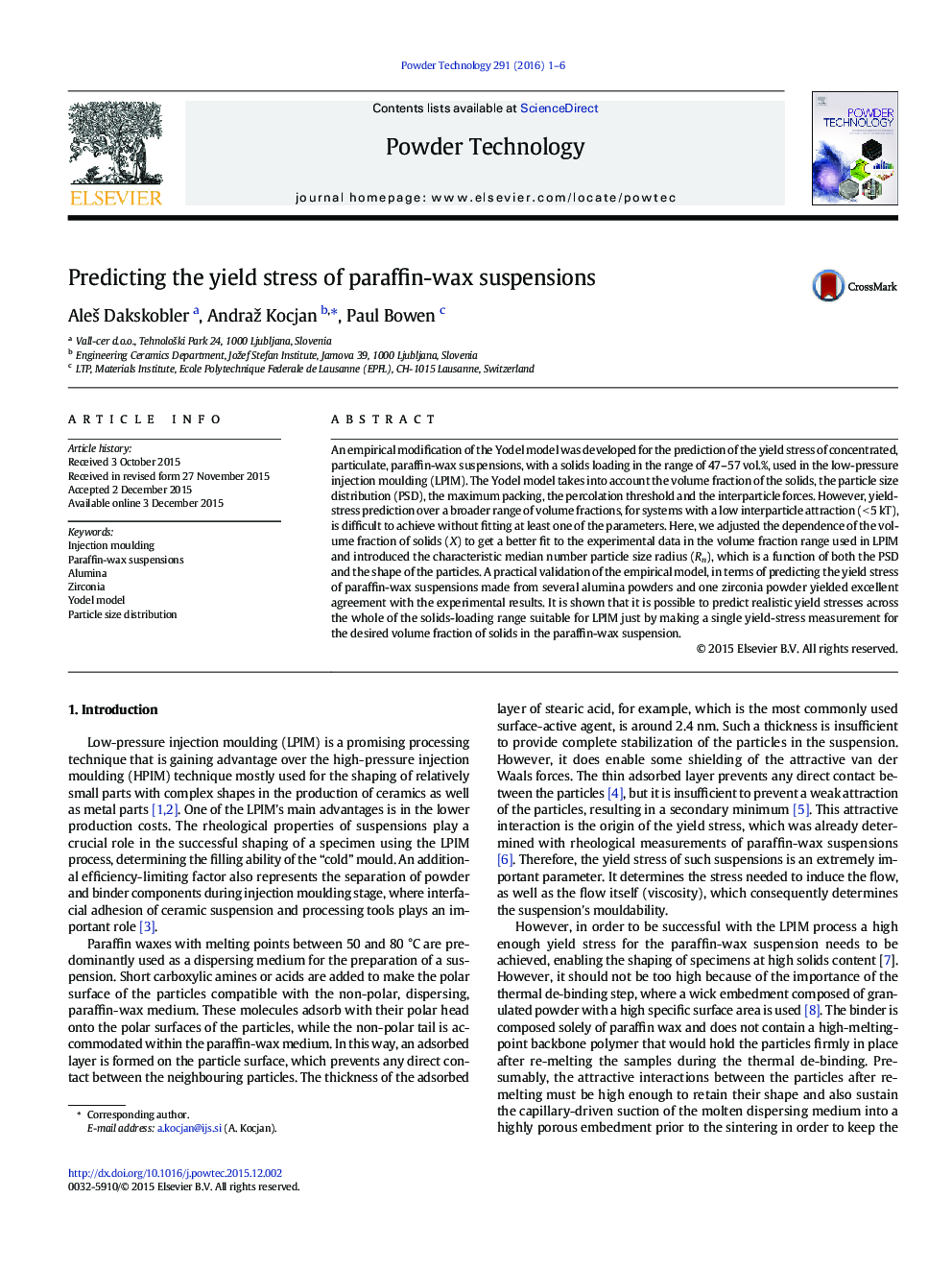| Article ID | Journal | Published Year | Pages | File Type |
|---|---|---|---|---|
| 234987 | Powder Technology | 2016 | 6 Pages |
•Empirical model predicts yield-stress in paraffin-wax suspensions.•A very good match obtained for several alumina and one zirconia powder•Characteristic particle radius can be treated as a fitting parameter.•Single measurement enough for precise yield stress prediction in broad θ range
An empirical modification of the Yodel model was developed for the prediction of the yield stress of concentrated, particulate, paraffin-wax suspensions, with a solids loading in the range of 47–57 vol.%, used in the low-pressure injection moulding (LPIM). The Yodel model takes into account the volume fraction of the solids, the particle size distribution (PSD), the maximum packing, the percolation threshold and the interparticle forces. However, yield-stress prediction over a broader range of volume fractions, for systems with a low interparticle attraction (< 5 kT), is difficult to achieve without fitting at least one of the parameters. Here, we adjusted the dependence of the volume fraction of solids (X) to get a better fit to the experimental data in the volume fraction range used in LPIM and introduced the characteristic median number particle size radius (Rn), which is a function of both the PSD and the shape of the particles. A practical validation of the empirical model, in terms of predicting the yield stress of paraffin-wax suspensions made from several alumina powders and one zirconia powder yielded excellent agreement with the experimental results. It is shown that it is possible to predict realistic yield stresses across the whole of the solids-loading range suitable for LPIM just by making a single yield-stress measurement for the desired volume fraction of solids in the paraffin-wax suspension.
Graphical abstractFigure optionsDownload full-size imageDownload as PowerPoint slide
